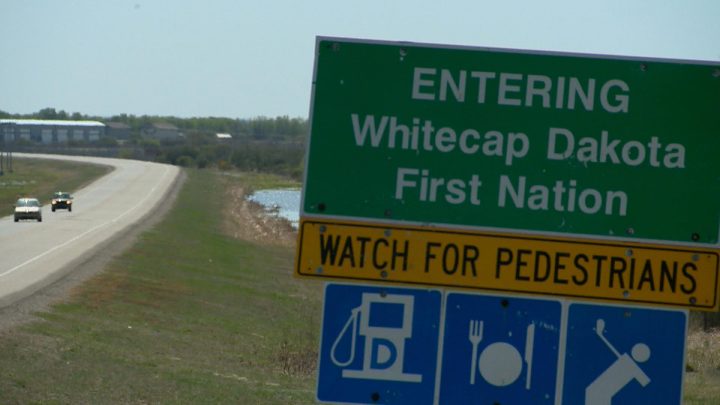Members of the Whitecap Dakota First Nation (WDFN) voted in favour of becoming the first self-governing Indigenous nation in Saskatchewan.

In a release, Chief Darcy Bear, along with councillors Dwayne Eagle and Frank Royal, announced the successful conclusion of their community approval vote.
A community vote was held on Oct. 6 and 7 with in-person voting at Whitecap and in Saskatoon, along with an online virtual vote, resulting in 92 per cent member support for adopting a WDFN Constitution and mandating chief and council to sign the Governance Agreement negotiated with Canada.
“I am very thankful to our members and their commitment to move the Whitecap Dakota Nation forward as a self-governing nation that is no longer under the control of an outdated Indian Act,” Bear stated.
“In approving our Constitution, we are asserting our inherent right and establishing broader law-making powers and fiscal certainty to continue to build our nation. Our lessons to date have taught us that taking more control over our affairs such as land management have paid incredible dividends in economic and social growth in our community.”
It took over 10 years for negotiations with Crown-Indigenous Relations and Northern Affairs Canada for the Governance Agreement, and a companion Fiscal Relationship Agreement and Implementation Plan.
According to a release, within the decade, WDFN undertook extensive consultation with its membership on the self-government arrangements and drafted a constitution that establishes the Whitecap Dakota government as a new government within Canada’s constitutional framework.
“Congratulations to the people of Whitecap Dakota First Nation on their vote for this historic self-government agreement,” stated Marc Miller, minister of Crown-Indigenous relations. “This is an important step for Whitecap in moving away from the Indian Act, implementing their inherent right to self-determination and seeing a better future for their community.”
Following Whitecap’s ratification, it will continue to work with the government of Canada to formally sign the Governance Agreement and introduce legislation in Parliament. This legislation will legally recognize Whitecap Dakota Nation as a self-governing Indigenous nation, alongside 78 other First Nations that are part of 27 various agreements across Canada.
Bear said once the nation is self-governed, the first nation will have new opportunities.
“By taking control of our own livelihood, that’s important to us as first nations and not having the federal government dictate to us what we can and can’t do and you know it never should’ve been that way you know we had the inherent right to self-govern ourselves and the federal government even calls it the inherent right to self-government,” said Bear.
Bear also believes it will allow the first nation to further contribute to the economy, benefiting everyone.
“End of the day, when we are part of the economy like I said, everybody wins, the province wins, the feds win, and even the non-Indigenous population wins too because you look at the diversity of our work force here, you know like our hotel here, we’ve got about 70 per cent Indigenous employees and 30 per cent non-Indigenous,” added Bear.
The new arrangements are targeted to take effect in the fall of 2023.





Comments